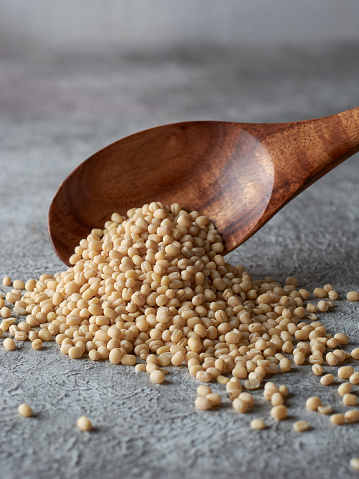Protein is an essential nutrient that plays a crucial role in many bodily functions, including the growth and repair of tissues, the production of enzymes and hormones, and the maintenance of healthy skin, hair, and nails. It is also an important source of energy, especially for athletes and active individuals who need to support their physical activity and muscle growth. One of the questions that often arises when it comes to protein is: how many calories are in a gram of protein?
To answer this question, it’s important to understand the basics of nutrition and how the body uses and stores energy. The energy content of food is measured in units called calories, and all nutrients – including proteins, carbohydrates, and fats – provide energy to the body in the form of calories. The number of calories that a food or nutrient provides depends on its chemical structure and how it is metabolized by the body.
So, how many calories are in a gram of protein? The answer is that there are approximately 4 calories in a gram of protein. This is slightly lower than the energy content of carbohydrates (which contain 4 calories per gram) and higher than the energy content of fats (which contain 9 calories per gram).
It’s important to note that the calorie content of protein can vary slightly depending on the specific type of protein and how it is prepared. For example, cooked proteins may have a slightly different calorie content than raw proteins, and some types of protein may have added ingredients or processing that can affect the calorie content.
It’s also worth noting that the body uses protein in different ways depending on the individual’s energy needs and activity level. For example, when the body is in a calorie deficit – meaning that it is burning more calories than it is consuming – protein can be used as an energy source to help meet the body’s energy needs. This is especially true for athletes and active individuals who have higher energy needs and may need to consume more protein to support muscle growth and repair.
So, how much protein should you be consuming to meet your energy and nutrition needs? The recommended daily intake of protein varies depending on factors such as age, gender, weight, and activity level. The Centers for Disease Control and Prevention (CDC) recommends that adults consume a minimum of 0.8 grams of protein per kilogram of body weight per day. For example, a sedentary woman who weighs 68 kilograms (150 pounds) should aim to consume at least 55 grams of protein per day, while a sedentary man who weighs 77 kilograms (170 pounds) should aim for at least 62 grams of protein per day.
However, these recommendations may not be sufficient for athletes and active individuals, who may need to consume more protein to support their physical activity and muscle growth. According to the International Society of Sports Nutrition, endurance athletes may need to consume 1.2-1.4 grams of protein per kilogram of body weight per day, while strength and power athletes may need to consume 1.4-1.8 grams of protein per kilogram of body weight per day.
It’s also important to choose high-quality protein sources that are rich in essential amino acids, which are the building blocks of protein that the body cannot produce on its own and must obtain from food. Good sources of protein include animal proteins such as meat, poultry, fish, and eggs, as well as plant-based proteins such as legumes, nuts, and seeds.
In conclusion, there are 4 calories in a gram of protein, and this macronutrient is essential for the proper function of the body. It is important to consume enough protein to meet your nutritional needs, but it is also important to be mindful of the total number of calories you are consuming from protein, especially if you are trying to manage your weight or meet specific dietary goals. By choosing a variety of protein sources and paying attention to portion sizes, you can easily meet your protein needs while still maintaining a healthy and balanced diet.

 Home
Home Health
Health Diet & Nutrition
Diet & Nutrition Living Well
Living Well More
More












